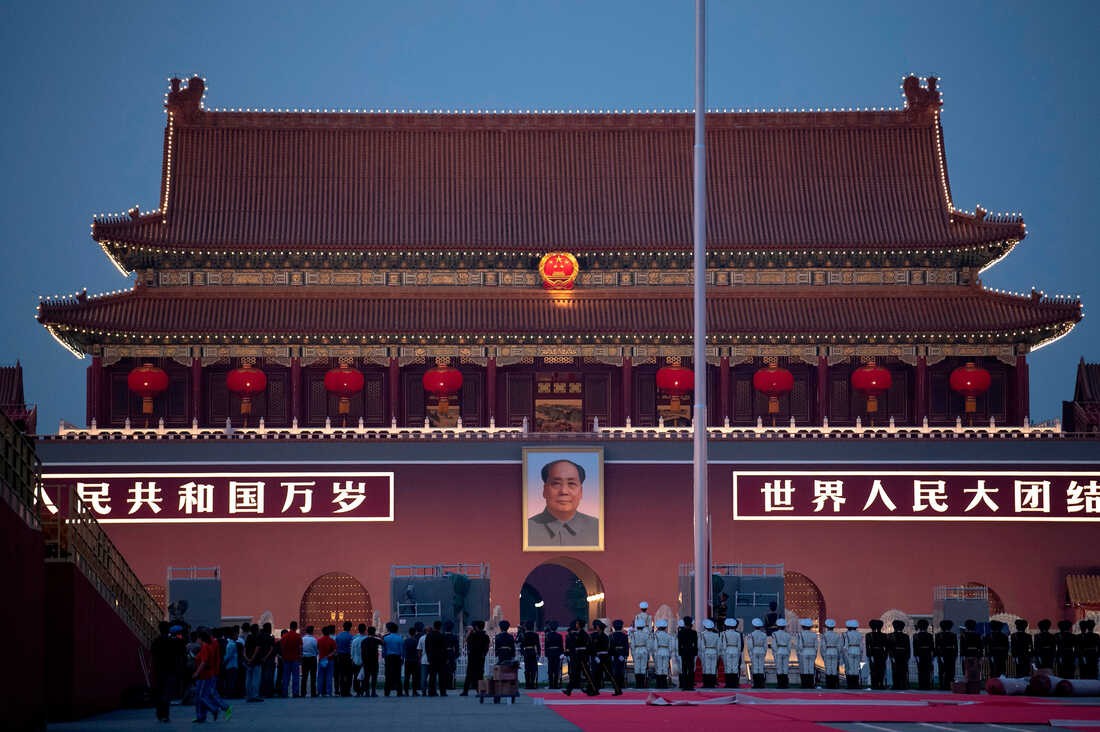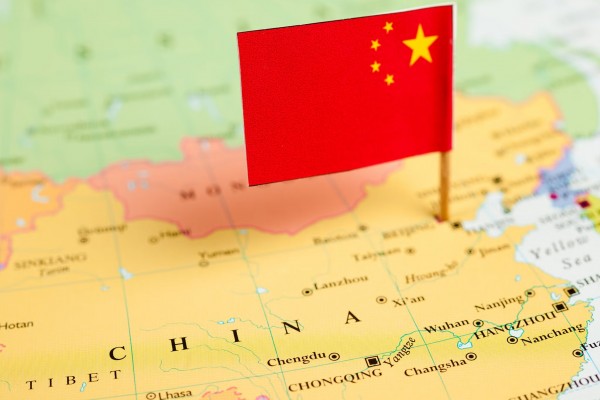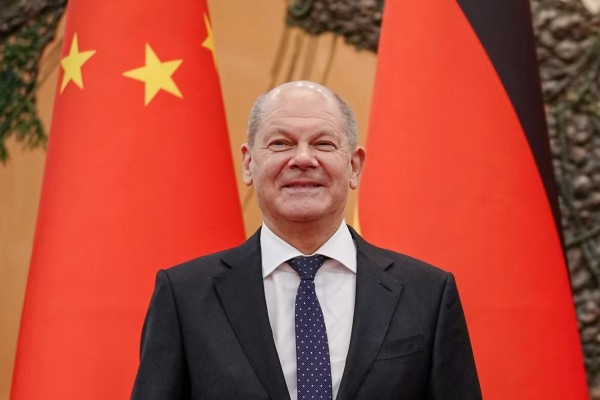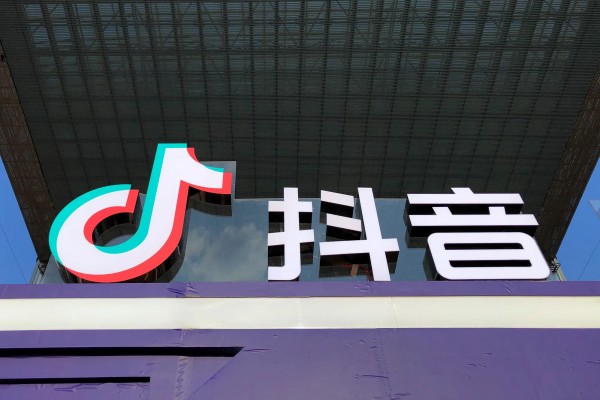Review No. 35 of Chinese Antitrust News from the Experts of the BRICS Competition Centre
- Report to the 20th CPC Congress: what it says about fighting monopolies
- White paper on community with a shared future in cyberspace published
- Strict regulation of digital platforms will continue
- RFA: China will take control of private companies through JVs
- First week of fair competition education in China
- New requirements for advertising on blogs
- Antitrust regulation successes in 10 years
- Ideological lectures on the ideas of the 20th congress for big tech
- CAC on harassment of Chinese companies
- China stopped publishing statistics on mobile apps
- Bloomberg: U.S. auditors have completed the first round of audits in Hong Kong
- Chinese employees have access to TikTok data
- NDRC expressed support for U.S. businesses
- Guidance on combating cyberbullying
Report to the 20th CPC Congress: what it says about fighting monopolies
On Oct. 16, 2022, in a report to the 20th Congress of the Communist Party of China, a major event in the country's political life that takes place every five years, Party General Secretary Xi Jinping stressed: "Strengthen anti-monopoly [measures] and the fight against unfair competition; fight local protectionism and administrative monopoly; regulate and guide the healthy development of capital in accordance with the letter of the law." Almost a decade ago, one of the plenums of the 18th Congress had already made the demand to "oppose monopolies and unfair competition," and in 2018 the 19th Congress declared to "crush administrative monopoly, prevent and suppress monopoly in the marketplace." However, the most extensive campaign to counter the unruly growth of market players began in late 2020, when meetings of the CPC Central Committee and Politburo called for "strengthening anti-monopoly [measures] and preventing indiscriminate expansion of capital." Immediately thereafter, an antitrust investigation was launched against Alibaba, which resulted in a record $2.8 billion fine for China.
White paper on community with a shared future in published
The white paper, titled "Jointly Build a Community with a Shared Future in Cyberspace," describes the theory and practice of Internet development in China, the principles of cyberspace governance, and the needs and prospects for international cooperation in this area. According to the concept of "community with a shared future", humanity has a shared responsibility for the development of the Internet and should jointly eliminate the relevant risks, jointly solve the problems that arise. It is noted that China has achieved outstanding results in stimulating the digital economy, "cleaning up" the online environment and protecting security in cyberspace.
Source: Xinhua
Strict regulation of digital platforms will continue
Journalists at a press conference of the Cyberspace Administration of China asked the agency, "Has China finished regulating and cracking down on online platforms? Will any more measures be taken?" According to Wang Sun, head of the Information Development Department, "Encouraging and supporting the healthy, regulated and sustainable development of digital platforms is an important responsibility of our Administration. We have ongoing oversight and monitoring of digital companies as required by law, and - if undesirable phenomena arise - we will carry out spot campaigns to eliminate them." He also noted that the Cyberspace Administration is pursuing a strategy of equal importance of both development and regulation, both policy guidance and legally dictated measures of both public and economic interest, thereby creating an enabling environment for the development and operation of platforms. SCMP calls this approach the "carrot and stick": when authorities intensify and severely apply penalties, but always keeping in mind that the ultimate goal of regulation is long-term development.
RFA: China will take control of private companies through joint venture
China's market regulator has approved, without additional conditions, an economic concentration deal to create a joint venture between China Telecom (a state-owned company) and Tencent. The JV will deal with smart city technology, digital management, big data and communications. In parallel, another state-owned telecom giant, China Mobile, and marketplace JD.com have agreed on strategic cooperation. According to Radio Free Asia, these measures are indicative of the Chinese Communist Party's desire to gain greater control over technology and telecommunications companies through public-private partnerships. According to experts interviewed by Radio Free Asia, joint ventures are needed to ensure that the state has access to managing the flow of information and materials, and in the future individual private companies may even disappear.
Source: rfa.org
China's First Week of Fair Competition Education
From November 14 to 18, the National Antimonopoly Bureau of China will hold China's first Fair Competition Policy Education Week. It will include the 9th International Forum on Fair Competition and a video meeting of the BRICS Coordinating Council on Antimonopoly Policy. The department has specially launched a website where information about all the planned events, of which there are more than a hundred, is published: www.samr.gov.cn/zt/jzz. The theme of the week will be "The Big Single Market. Fair competition for the future".
Source: SAMR
New requirements for advertising on blogs
SAMR, along with six other agencies, published guidelines on advertising involving media personalities. It noted that celebrities often distribute false information when they participate in advertising, and some companies, for which traffic is a priority, hire untrustworthy bloggers, celebrities, etc., for promotional activities. The guidelines required regulators to follow the core values of socialism, monitor creditworthiness and monitor the activities of all parties: the stars who act as the face of a product or service, the businesses that run ads and the media where they are published. In particular, media personalities are forbidden to post content that undermines national dignity, promote pornography, gambling and superstition, encourage irrational consumption and mercantile manners. They are also banned from advertising tobacco products (including e-cigarettes), extracurricular education, and medical and pharmaceutical products. Advertisements also cannot exaggerate the properties of a product or involve data that cannot be verified.
Source: SAMR
Successes of antitrust regulation in 10 years
Wu Zhenguo, head of SAMR's 1st Antitrust Enforcement Department, reported on the performance of antitrust enforcement over the past 10 years - since 2021, when Xi Jinping took over as CPC general secretary and chairman of the PRC. There were 277 cases of anticompetitive agreements and abuse of dominant position (the amount of penalties ≈$5 billion), 345 cases of abuse of administrative power to the detriment of competition, 3,822 applications for economic concentration deals (2 blocked, 42 approved with additional conditions). Among the major market competition violation cases are those of Qualcomm, TetraPak, Yangtze River Pharmaceutical Group and three AFI manufacturers of injectable calcium gluconate. According to Wu Zhenguo, these ten years have been a period of extraordinary antitrust enforcement, vigorous application of competition policy and dissemination of competition culture among the general public. Going forward, the agency will work to improve the legal system, strengthen and update antitrust measures and improve their effectiveness, eliminate problems that cause wide resonance, implement the principle of "regulation for the sake of people," and continuously build up China's credibility in the international "arena" of antitrust policy.
Source: SAMR
Ideological lectures on the ideas of the XX Congress for big tech
The Administration of Cyberspace held thematic lectures at Huawei and Kuaishou. The lectures were devoted to the study of Xi Jinping's key instructions and the objectives set at the 20th Congress of the Chinese Communist Party: to win the "struggle" for key technologies, strengthen technological sovereignty, and secure China's status as a "cyber power" and "digital" state.
In Huawei, the agency stressed the importance of implementing modernization according to the Chinese model with the help of technology: it is necessary to accelerate breakthroughs in key technologies, stimulate innovation, and promote digitalization of all industries. The significant role of enterprises in creating technological innovations was separately noted.
Kuaishou mentioned the need to promote socialism with Chinese characteristics, to use innovation to spread an important agenda, to better broadcast information to the international arena, and to improve Internet management systems.
A little later, at the World Internet Conference in Wuzheng, top executives from Alibaba and JD.com expressed their desire to promote the goal, also set at the 20th Congress, of integrating the digital economy with the real economy. "JD.com started out as a real company and is back to the real economy," said Xu Lei, CEO of the marketplace. - We are a new kind of real company: with the real economy in our DNA, but with digital power. We understand the needs and pain points of the real economy <...> and will play an important role in the new development paradigm.
Sources: Cac.gov, Baijiahao, SCMP
CAC on harassment of Chinese companies
At a press conference of the Cyberspace Administration (CAC), Qi Xiaoxia, head of the International Cooperation Department, noted that the activities of Huawei and some other Chinese companies abroad are being restricted. She cited malicious pressure from individual countries on China under the auspices of protecting national security as the reason. "The international community is in dire need of unification, not division. Being in the same boat, we should help each other, not push the other overboard <...> By provoking segmentation and confrontation, one can only harm oneself. Mutually beneficial cooperation is the only way.
The German city of Duisburg is an extreme example of the relationship mentioned above: the parties had previously agreed to create a "smart city," but the memorandum recently expired, and the municipal authorities said they would not renew it at this time because of "relations between Russia and China."
China dtopped publishing statistics on mobile apps
For the last three months the Ministry of Industry and Information has been omitting data on mobile apps when publishing statistics, with the latest information dating back to July this year. Statistics on the segment began to be included in the Ministry's reports in August 2017 and have never disappeared from public data since then. It is not known whether the final app data for 2022 will be published. The largest mobile app operators have recently faced declining consumption and a slowing economy amid strict anti-epidemic measures and tighter regulation. There are now 2.32 million mobile apps available in China, down from 4.49 million at the end of 2018 - many have been removed due to non-compliance with applicable laws, including personal data processing requirements.
Source: SCMP
Bloomberg: U.S. auditors complete first round of inspections in Hong Kong
Representatives of the U.S. Public Company Accounting Oversight Board (PCAOB) have completed the first round of audits of Chinese company records and are preparing to leave Hong Kong ahead of schedule - inspections were not scheduled to end until mid-November. Next, the Board will issue a preliminary report identifying deficiencies or items that need to be corrected. Thus, regulators have yet to determine whether Chinese companies, including Alibaba, NetEase and JD.com, will be delisted from U.S. exchanges. As noted in a Bloomberg report, the Chinese side required the names, addresses and salary levels to be plastered on corporate documents. The U.S. will investigate whether the presence of Chinese representatives affected auditors' access to necessary and unchanged information.
Source: Bloomberg
Chinese employees have access to TikTok data
Elaine Fox, TikTok's director of privacy in Europe, said the company "allows individual employees who are members of corporate groups in Brazil, Canada, China, Israel, Japan, Malaysia, the Philippines, Singapore, South Korea and the United States to have remote access to European TikTok user data." At the same time, the data itself is stored on servers in Singapore and the United States. Fox notes that access is provided by methods recognized by the General Data Protection Regulation (GDPR), and stringent security controls and approval procedures are applied in the process. The data will be used for a variety of audits, including the effectiveness of recommendation algorithms.
The public is concerned about the security of TikTok users' personal data and, in particular, the potential for the Chinese government to access personal data.
Source: The Guardian
NDRC expressed support for U.S. businesses
The State Development and Reform Committee held a roundtable discussion with top executives from more than 60 U.S. companies with offices in China. Authorities noted that China will persevere in its pursuit of further openness. The committee expressed the hope that companies will remain active in investing in China and integrate into the new architectonics of the country, support the process of high-quality development, thereby ensuring the safety and stability of global production and supply chains, contribute to the recovery of the global economy. The round table was attended by leading U.S. companies from the pharmaceutical, energy, finance, automotive and other industries, which have been present in the Chinese market for many years and have a wide audience of consumers. The representatives noted that the meeting helped them better understand the instructions of the 20th Congress on the further economic development of China and increased confidence in future investment plans.
Nevertheless, a report released the other day by the American Chamber of Commerce in Shanghai (AmCham Shanghai) shows that only 18% of companies surveyed consider China the No. 1 destination for investment (up from 27% last year). In addition, the percentage of companies optimistic or rather optimistic about China's five-year development plan has dropped to 55%, the lowest in the history of the survey since 2012.
Sources: The Paper, Amcham Shanghai
Guidelines on combating cyberbullying
The document is intended to protect Internet users from insults, slander and infringement of their privacy. Online platforms are required to create mechanisms to identify (form reference databases) and prevent aggressive content, develop recognition models (based on the subject, number of participants, content, frequency of publications, etc.), introduce easily accessible "buttons" to manage personal messages and contact technical support. We need to increase control of comments under news, posts and topics, filter out inappropriate posts, and intensify checks of live broadcasts and short videos to block broadcasts with multiple incidents of cyberbullying in a timely manner. Perpetrators are spoken to and, depending on the circumstances, blocking, disabling features or even banning new accounts across the Internet may apply. Platforms that do not do a good job at controlling cyberbullying also face punitive measures, including a reprimand, a requirement to remedy the violation within a specified time frame, fines, suspension of content updates, site removal, etc.
Source: Weixin




